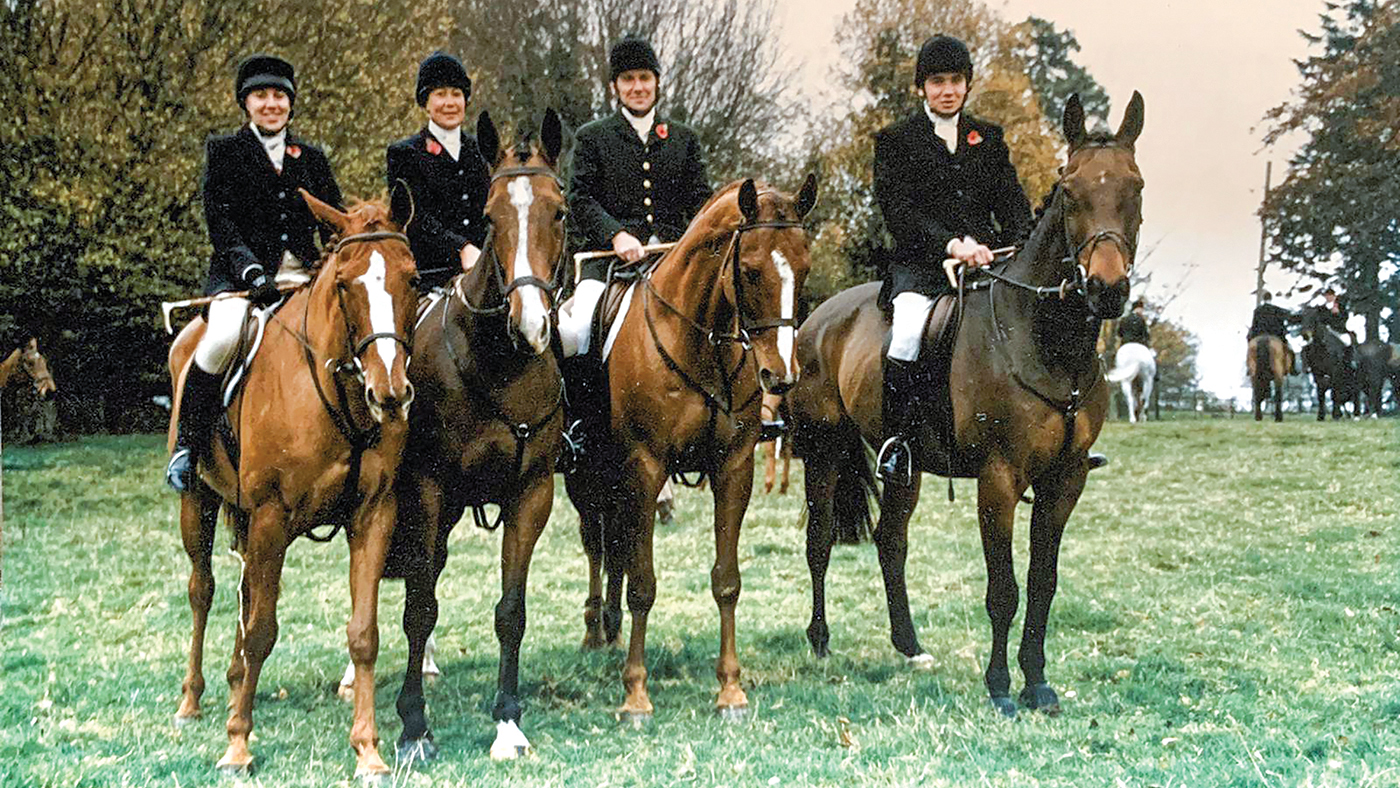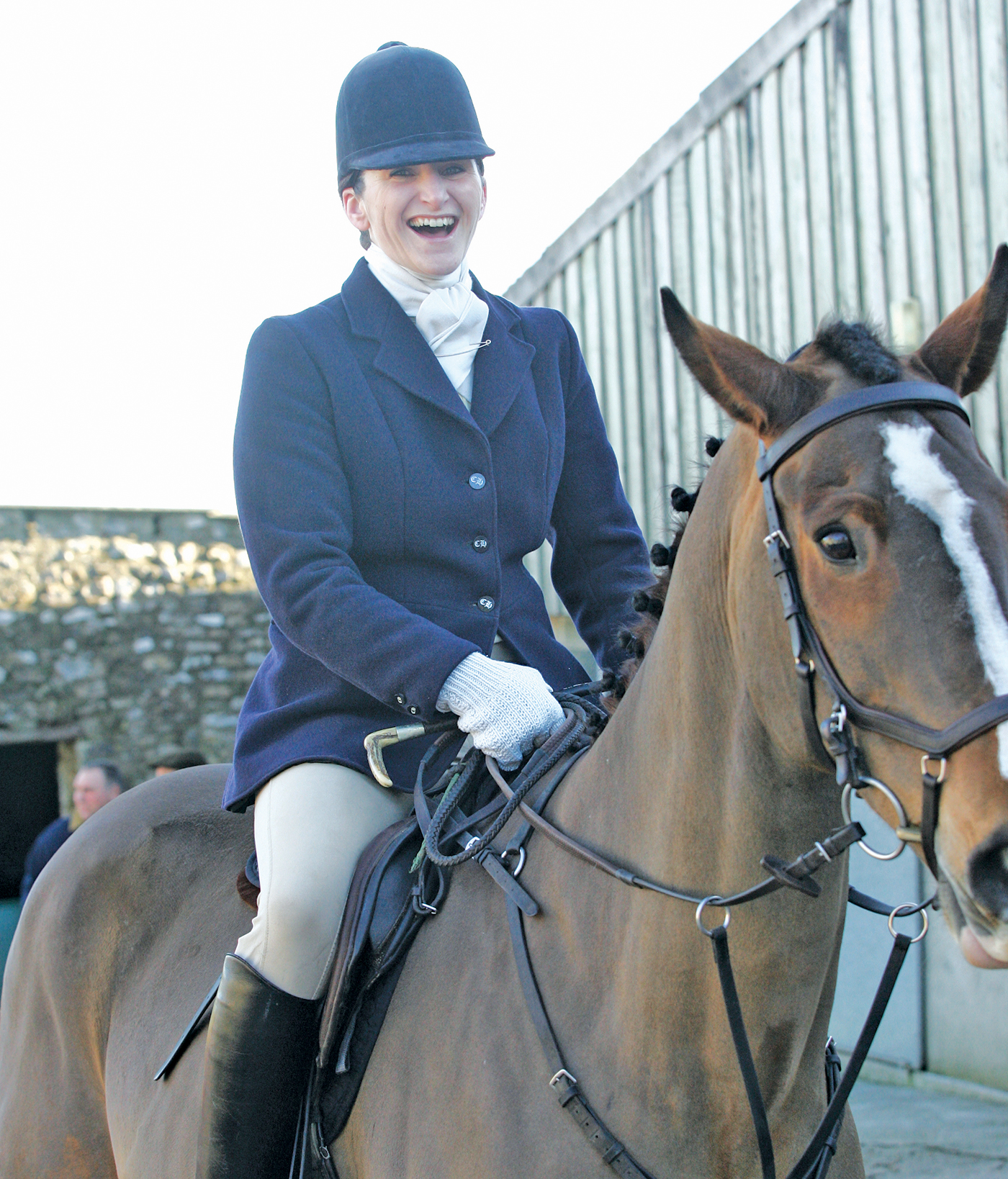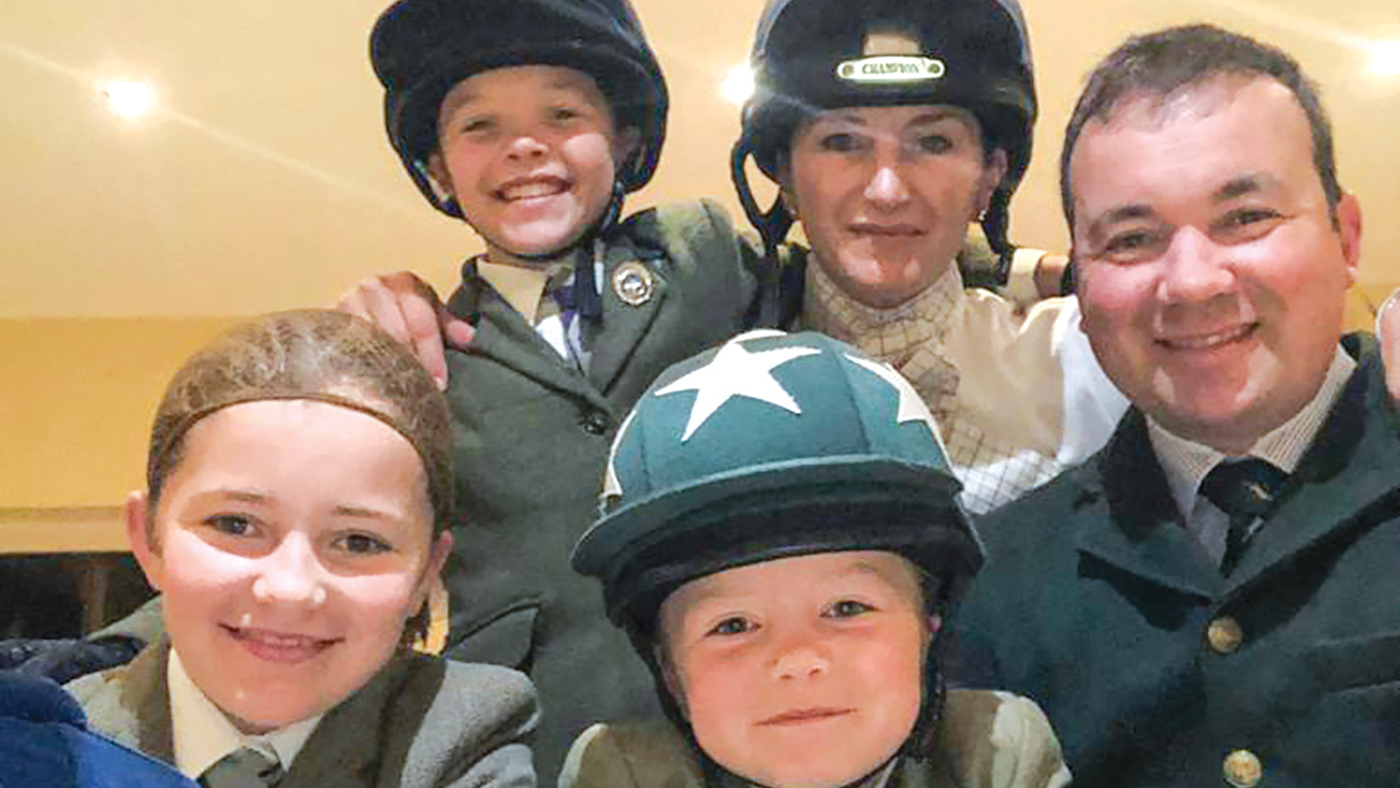Fred Eames’s retirement as master and huntsman of his family pack, the Cotley Harriers, means it’s the end of an era for these hounds, as Will Chanter discovers
FOR many, the wilds of Devon are to be avoided for hunting. It is seemingly a place where, historically, the local populace pursued different game animals nearly the whole year round and, even more worryingly for some, apparently don’t count the number of jumps encountered.
However, for locals and converts there is no finer place to hunt and perhaps, even more so, no greater hunting community to hunt among.
While the West Country is full of “unters”, they are a factional bunch. Perhaps those who purvey the closest to unadulterated West Country charm and old-fashioned courtesy are those who hunt with the West Country harrier packs. Among those, the Cotley Harriers, with their unblemished pedigree of both hounds and huntsman, stand prominent.
The retirement of Fred Eames after 14 seasons of hunting hounds brings to an end a nearly unbroken tradition of the Eames family hunting hounds since 1797, when Fred’s great-great-great-great grandfather Thomas Deane (whose daughter married an Eames) started the Cotley.
No doubt the harbingers of doom who soar over social media waiting for the carrion of hunting will cry that this really is the end, for the Cotley without an Eames seems like the Tower without its ravens, but with Fred’s cousin Mary Perry – the daughter of Vyvyan Eames – continuing in the mastership, the family connection remains.
Also retiring is Fred’s father, Edward Eames MFH, who has held office since 2000 and, very ably, started hunting hounds at the age of 52, having whipped-in since 1968. Duncan Cinnamond, the popular kennel-huntsman, goes to hunt the Albrighton and Woodland and Matt Biddiscombe will now hunt the hounds.

Fred (right) with his father Edward, mother Janet and sister Sarah in 1996
TRADITION
THE Eames have a strong tradition of apprenticeship within the family and it is the relative norm for young members of the family to carry the horn occasionally. Vyvyan first hunted hounds aged 16, but history relates that Edward rode beside him blowing the horn on his behalf. Fred was no exception and was indoctrinated in this manner.
He explains: “I started wearing a green coat when Dad took on hunting the hounds and began to ride with him. Gradually as I got keener I was occasionally allowed to hunt the hounds; Dad would find and generally remark, ‘See what you can do with that’.”
This developed until it was felt that Fred was ready and he joined the mastership in 2007, whereupon he began to hunt the hounds. He had a ready-made team in his three amateur whippers-in – John Eames, Marilyn Burrough and Gordon Herrod – and credits them hugely for a smooth transition.
“They were a huge help and very encouraging,” Fred says. “They also knew the country backwards and when I got somewhere I was less familiar with, they always showed me routes through it.”

Fred Eames
This is not entirely surprising, as between the three of them they had more than 80 years of experience whipping-in to the Cotley. What young huntsman wouldn’t be delighted to receive such assistance?
Latterly James Legg has been of considerable help and, as a younger man and first-class jockey, is always willing to cross the country when hill topping looks like the better option.
Fred also continued to benefit from help from his father who, although having relinquished the horn, continued as master. Fred pays him great credit both as a mentor and as the previous huntsman who had got the hounds going extremely well.
Edward effectively became chairman – although the Cotley, being a family pack, have no such role – once Fred started hunting the hounds and Fred was joined in the mastership by his cousins, Mary Perry and Tom Eames.
Fred also gives thanks to his kennel-huntsmen – Mark Wheeler, Paul Williams and Duncan Cinnamond – all who have said over the years that the Cotley is a rather special place, and not without a twinkle in their eye, that they saw their role as an employees of the Eames family rather than the hunt and enjoyed the privilege that this carried.

Lulu Eames, Fred’s wife
“A SPECIAL ANIMAL”
PAUL was instrumental in the introduction of a Liddesdale outcross, having come from the nearby Jed Forest, and both Fred and Duncan rate these hounds very highly, while no less than Nigel Peel has always been a firm “bidder” for any drafts when they are available.
Fred repeats a story of Nigel’s that at a particular check it was only the Cotley breeding that could take the line on. The fact that this line was on top of a dry-stone wall makes the story worthy of repetition.
The West Country harrier is a special animal imbued with a “beaglesque” sense of happiness and eagerness. The downside of this is that they can be overexcitable and, to quote Duncan, “The more excited they get, the more likely they are to misbehave.”
As a consequence they do not suit some huntsmen, but Duncan recognised soon after his arrival that Fred’s relaxed demeanour was the perfect foil for the overexcitement and that the mutual trust between Fred and his hounds was far beyond many would be willing to give.
In a country in which it is sometimes difficult to get to hounds, and one that benefits from relatively good scenting conditions, he was soon impressed with how this approach meant that hounds were continually able to work things out for themselves. In Duncan’s words, “it suits the hounds and suits the country.”

Fred Eames’ family
Fred elaborates on this and says that his ultimate aim was to have a pack of hounds that he could take to the first draw and then largely leave alone for the day, his particular theme being that a good day when conducted on this basis “means credit to the hounds and not the huntsman”.
He uses the analogy that as a huntsman he is there more as a reference point than a referee and that his greatest frustration as a huntsman was to see hounds languishing and not pushing on through. When one considers that much of the country is stiffly fenced with stock fencing either side of substantial banked or thorn hedges, it is a not-inconsiderable benchmark.
Fred also credits the West Country harrier with an honesty and says that many of his older hounds, until physically beginning to struggle to keep up, do not “run cunning”. These older hounds are particularly helpful in the early stages of a hunt when the harrier is occasionally likely to get overexcited.
He describes the noise of them striking a line as a “carnival”, and anyone who has ever heard the Cotley at full tilt in the depths of a steep Devonian valley will now doubt agree. Particular hounds he has had a soft spot for are Gauntless, Regent, Landlord and Twilight, all of whom went through to at least their seventh or eighth seasons.
One of the great highlights for Fred has been showcasing the hounds while visiting other countries where, he says, “We’ve never had a bad day”. Perhaps the best in Fred’s mind was a day at the South Dorset.
Hounds had been hunting well all day but later on had settled in to a decent hunt. On breasting the ridge of one of the wider downland valleys the tail hounds were seen disappearing into the distance, whereupon the whipper-in said, “How the bloody hell did they get there?” – a highly satisfactory comment for Fred.

Lt Col Dick Eames
ELYSIAN FIELDS
WHILE away days may have been occasional highlights, cracking days in the Cotley country never seem to be in short supply. Fred pays great tribute to the extraordinary generosity of the farmers within the country whom, he says, “hardly ever, or rather never, say no”.
When discussing the changes to the country in the past 20 years, access didn’t really feature; testament to the excellent relationship the Eames family have historically had with their farmers but also Fred’s personable approach and familiarity.
He comments that the biggest change in the country is the amount of maize now grown, but even then he does not particularly see this as a problem as it is generally left as stubble during the hunting season.
In Fred’s mind, other than the Cotley hounds, one of the greatest assets to his mastership has been Lucinda, his wife. She has been unstinting in her backing at every turn, including being largely responsible for the horses, and also immensely supportive of any Cotley fundraiser.
They have three daughters who it is said, all “go like stink” and it is not unknown for Fred rather to wonder how his own horses, his wife’s and his daughters’ ponies all seem to have arrived at the appointed hour, at the same time, in immaculate order.
So in such Elysian fields with hounds and a country so beloved, one wonders why Fred would wish to step down, but he is unequivocal.
“I want to give up before I lose interest,” he says.
He moves on rather more prosaically: “I have been out with some packs when the huntsman goes on until it’s dark, he’s on his own and sometimes even the staff have gone home. Occasionally I’ve perhaps gone home when there was one more hunt to be had, but when I’ve seen people later and they’ve said that they’ve hugely enjoyed themselves and can’t wait to be out again, I know I’ve done the right thing. I think it is on that basis that I’m giving it up.”
And so the Cotley without an Eames hunting them? Fortunately it is not unprecedented, as in the 1960s the much-venerated Lt Col Dick Eames briefly had to hand over the horn due to illness for a couple of seasons, and while wishing the incoming huntsman the very best, it is hoped that this period will be merely an interlude before another Eames takes up the horn.
This exclusive column is also available to read in this Thursday’s H&H magazine (15 April, 2021)
You may also be interested in…

An education in hunting: the role of school and college packs *H&H Plus*

Hounds of a lifetime: the best ones huntsmen have been privileged to work alongside *H&H Plus*

Andrew Cook’s key learnings from 30 years’ hunting: ‘Always trust your hounds’ *H&H Plus*
As Andrew Cook prepares to step down from a 30-year career with hounds, he talks about his experiences and what

How leading hunting figures learnt to ride *H&H Plus*
Rory Knight Bruce finds out how some of hunting’s leading lights learnt their skills in the saddle

